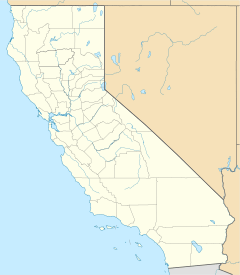Ingomar, California facts for kids
Quick facts for kids
Ingomar
|
|
|---|---|
| Country | United States |
| State | California |
| County | Merced County |
| Elevation | 92 ft (28 m) |
Ingomar was once a small, unnamed place in Merced County, California. It was a community that didn't have its own official local government. You could find it about 10.5 miles (16.9 km) northwest of Los Banos. Ingomar was located at a low elevation of 92 feet (28 meters) above sea level.
What Was Ingomar?
Ingomar was a small settlement that grew up around the Southern Pacific Railroad line. It was never officially made into a town or city. Instead, it was known as an "unincorporated community." This means it was a group of homes and businesses that were not part of any city.
How Ingomar Got Its Name
The name Ingomar was used for the community's post office, which opened in 1890. It's thought that the name came from a popular German play. This play was called Ingomar, the Barbarian. It was written in 1842 by Baron Eligius Franz Joseph von Münch-Bellinghausen. The play was very well-known in the late 1800s.
Life in Ingomar
Life in Ingomar began to take shape in the late 1800s.
- In 1884, a school was built for the children living there.
- When the railroad was built through the area in 1889, the community was officially mapped out.
The people of Ingomar mostly worked in farming and dairying. This means they grew crops and raised cows for milk. By the early 1910s, Ingomar had a few important places:
- A school for kids
- A blacksmith shop, where metal items were made or repaired
- A general store, selling everyday goods
- A cream-shipping depot, for sending out dairy products
- Housing for the railroad workers
Why Ingomar Disappeared
Sadly, Ingomar did not last forever. The community started to decline for a couple of reasons.
- The post office, which was a key part of the community, closed in 1921.
- There were also problems with the water supply, making it difficult for people to live there.
By 2009, most of Ingomar was gone. Only the foundations of old buildings remained. It became a "ghost town" of sorts, a reminder of a community that once thrived.
 | Charles R. Drew |
 | Benjamin Banneker |
 | Jane C. Wright |
 | Roger Arliner Young |



